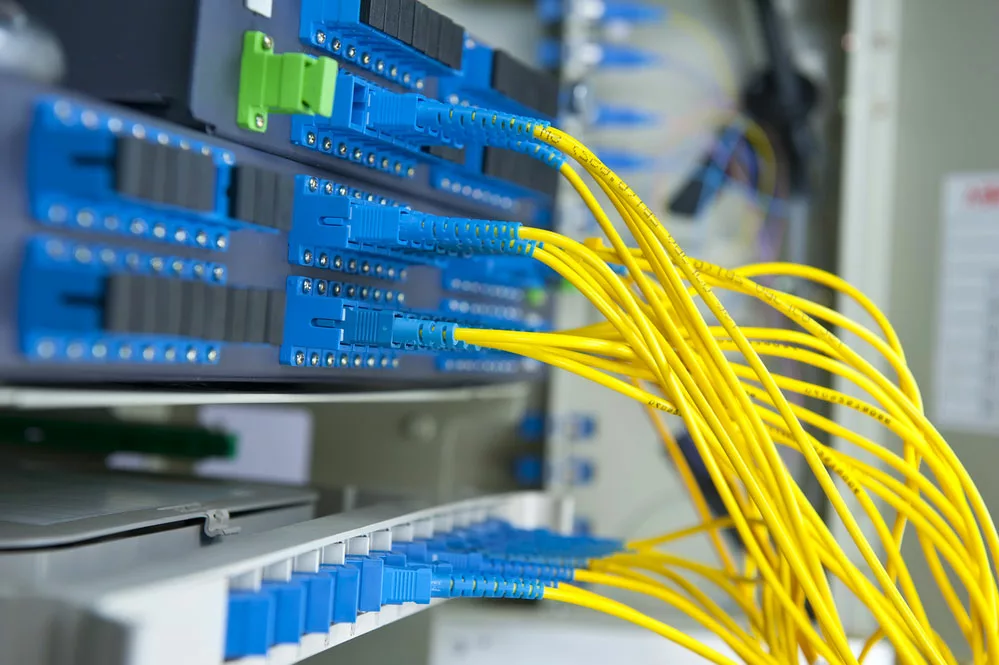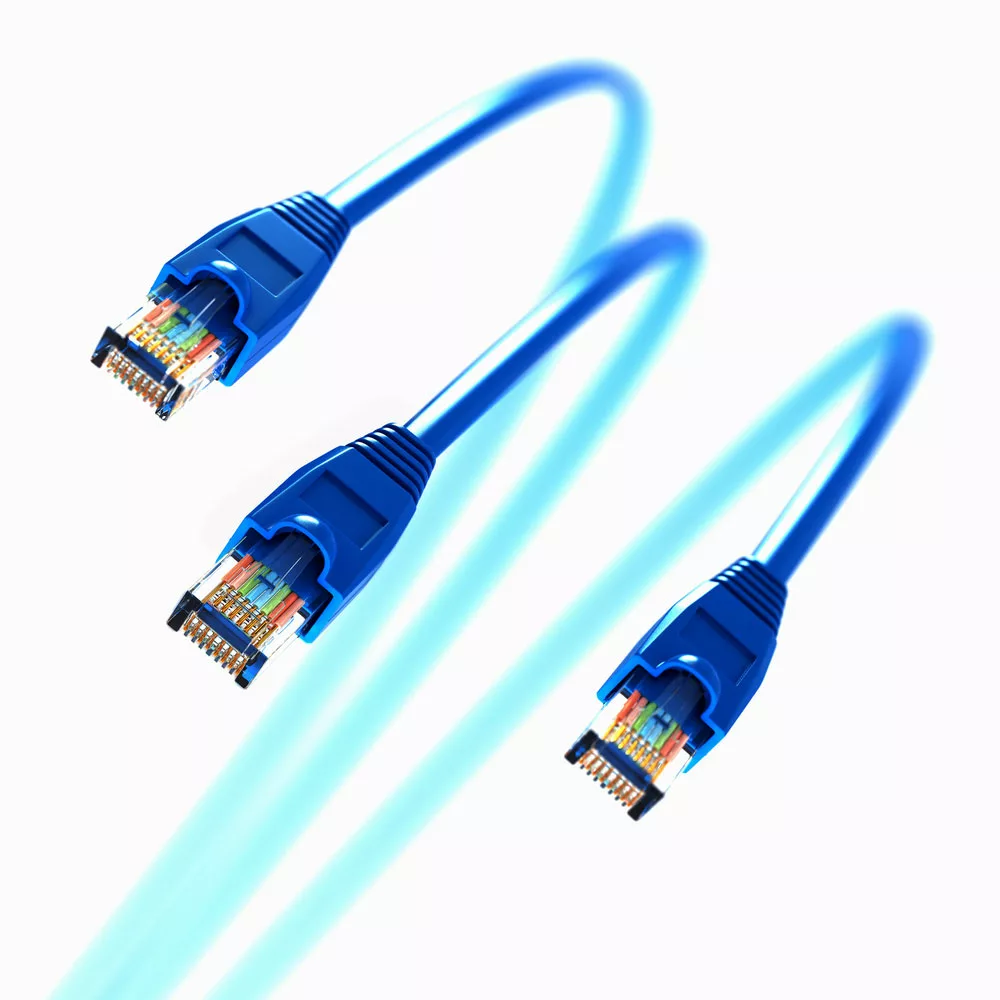Today, the term “cable” is frequently confused with an internet connection, which was once synonymous with “TV service.” Cable internet is a widely available service, not only in the United States but throughout the world. According to statistics, cable internet covers about 89% of US households and is available in 97% of the urban area, which means it would easily be present in your residential area. Let’s dig into cable internet providers.
Table of Contents
- What is cable Internet?
- How does the cable Internet work?
- Pros and Cons of cable internet
- Best Cable Internet Provider
- Conclusion
What is cable Internet?
For decades, ISPs have been using coaxial cable to provide internet to buildings. They use larger bandwidth lines that can send high-speed internet signals throughout the region. Moreover, the coax cable is resilient to many environmental aspects, making the connection as smooth as possible. Furthermore, even if cable internet speed decreases, and latency increases during busy hours, it is still better than the DSL or satellite internet options. Lastly, cable internet connections are easy to set up and install due to their simplistic nature.
The internet cable connection comes with various speed options, and it’s up to users to choose which one best fulfills their needs. Of course, cable internet plans have different pricing depending upon the speed they offer. The speed varies from Megabytes (Mbps) to Gigabytes (Gbps), with a certain threshold of data usage each month (Some even offer unlimited data).
However, many companies are now switching to fiber-optic technology as it tends to work on a different principle than coax. Moreover, the signals it provides are also higher in quality than coax. Still, as it is fragile, you may not use it in intense areas like under the sea. Thus, coax will still be your choice of wire.

Caption: Fiber optic cable
How does the cable Internet work?
The copper-clad cores in the coaxial cables are responsible for carrying the internet signals. Your modem has an advanced protocol called DOCSIS, abbreviated as data over cable service interface specifications, that renders the internet signals received from the coaxial network.
DOCSIS technology has played an important role in enhancing and improving internet capabilities since 1997. It has gone through several major advancements since then, and currently, the 3.1 version has empowered ISPs to transmit data worth 1000 Mbps. Once the modem translates the signal, the Ethernet cable sends it to the router. After that, the functionality of all internet types is the same. The Wi-Fi can further send this signal to the devices connected to it.
Pros and Cons of cable internet
Of course, like any other technological advancement, cable internet connections also have definite pros and cons.
Pros of Cable Internet
Wide availability
According to some studies, nearly 88% of US households have cable internet. So, you can say it is the popular choice among the masses. Moreover, since the cables have been laying underground since the 1970s, getting the connection for any easier easy than a fiber optic connection. All these factors make cable the best choice for internet connectivity.
Fast download speed
This goes without saying that internet cables can transmit up to 1000 Mbps, equivalent to what fiber cables can transmit. Of course, not all cables can transmit that kind of speed, but at the same time, not every house needs to work with this much speed. Different Internet Service Providers provide internet packages with affordable prices based on speed, bandwidth availability, and other factors.
Bundle deals
It’s no secret that cable providers use the same coaxial cables to transmit TV and internet signals to each house. Therefore, they incentivize this by offering their users good discounts on bundle deals. This also empowers you to save money in the long run when getting connections for all mediums (TV, internet, and phone) from the same ISP rather than purchasing the connections from different ISPs.
Cons of cable internet
Network congestion
In the modern world today, network congestion is nearly a non-existent issue. However, during rush hours (most probably evening), customers might experience internet degradation due to fewer nodes. These nodes are responsible for providing internet cable connections to the neighborhood.
Although internet cables can support large bandwidths and transmit signals at a higher rate, problems arise when massive data converges at the node. As a result, the rate of signal transmission drops, and congestion occurs. However, different ISPs are working on adding more nodes throughout the country.
Slower Upload speed
The Internet upload speed is different from the download speed. All internet service providers offer pricing plans for their internet packages based on download speed since most users are heavy downloaders. However, this can present problems for those users who’re heavy uploaders.
Expensive
Cable internet services can be expensive depending on your locality. It means if you’re living in an area with only one ISP, you’ll get an expensive internet connection due to a lack of competition.
What to look for before buying internet cable
Internet service will likely be available in your residential area, so when subscribing to the internet cable connection, the following are the features you should consider:
- An Internet service provider is offering their services to you.
- ISP offering you their services is near your locality.
- Prices are to match your internet budget.
- The speed is according to the needs of your family.
- Whether the bandwidth limit is limited or unlimited
- Bundle options (Internet + TV + Cable)
Internet cable connection varies from $20 to $100 depending on the speed of the internet connection. The speed will be slow with a low monthly rate, and vice versa. Furthermore, it’s mandatory to subscribe to internet packages that not meet your budget but also match your needs. That said, looking for unlimited bandwidth and no-contract internet options is better. Not all ISPs roll out this feature, but if you happen to come across one offering unlimited bandwidth with no contract, we recommend subscribing to it even at a little additional cost.

Caption: Computer network cable
Best Cable Internet Provider
Now without waiting any further, here’s our list of best Internet Service Providers that we narrowed down based on Price, Download speeds, Data caps, Contracts, Promotional pricing periods, and Availability.
Comcast Xfinity: Best Value
Xfinity is widely spread throughout the United States and therefore is considered among the top 5 ISPs in America. Xfinity’s price plans are regularly updated, and new deals appear monthly. This means that if you can’t afford it today, you might be able to tomorrow. However, your plans, speed, and monthly charges can change depending on your locality. Xfinity internet cable connections provide its users with hefty download speeds compared to other internet service providers in the given area.
Spectrum: Best for no contracts
Spectrum is best for those who enjoy unlimited bandwidth without signing any contract. This means you get to enjoy your internet without any throttle or degradation. However, it must be kept in mind that its monthly rates are higher than other ISP plans due to no data cap and contract.
Cox: Best cable TV and internet bundles
Cox provides Internet and cable connection and has been ranked at 8th number among all other ISPs. It is well known for its bundle deals and provides TV cable and internet connection at a fair price on monthly prices.
Astound Broadband, Powered by RCN: Best price for gig cable internet speeds
Astound Broadband, powered by RCN, is one of the most powerful internet service providers that rival Xfinity in terms of speed and pricing plans. Furthermore, they outperform Xfinity in terms of bandwidth as they offer their customers unlimited data. When it comes to
WOW! Internet: Also, great value
WOW is also a great choice if you’d love to enjoy the fast downloading speed at a low price compared to other ISPs. Not only that, WOW, updates the prices of its plan packages every two years as compared to Xfinity (they upgrade the pricing of their internet plans each year).
Conclusion
After thoroughly analyzing all the ISPs, we’ve concluded that Comcast’s Xfinity is the best in terms of fast speed, promo pricing, and wide availability. However, other ISPs (Spectrum, Cox, RCN, and WOW) offer great value and deals. For further insights, you can contact us here.
